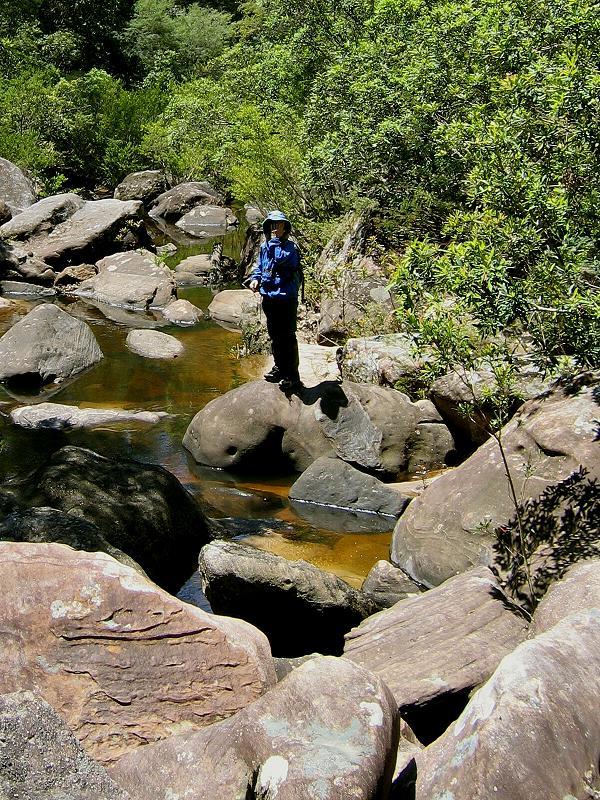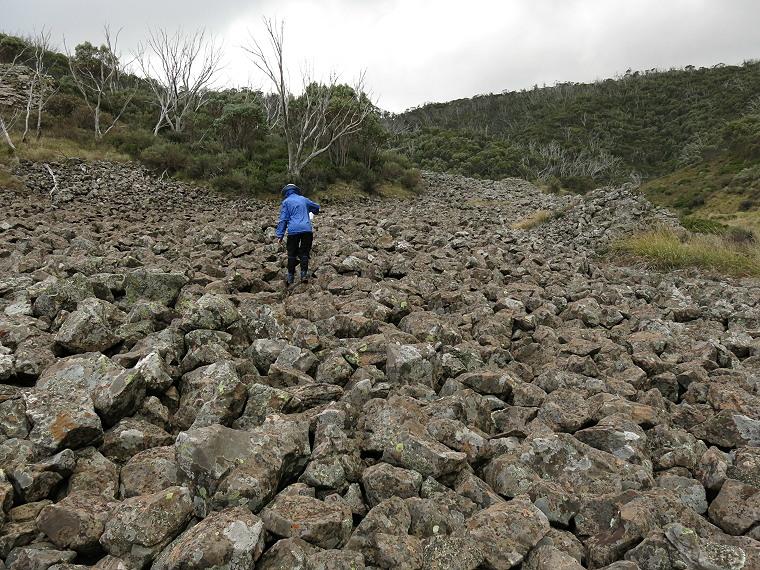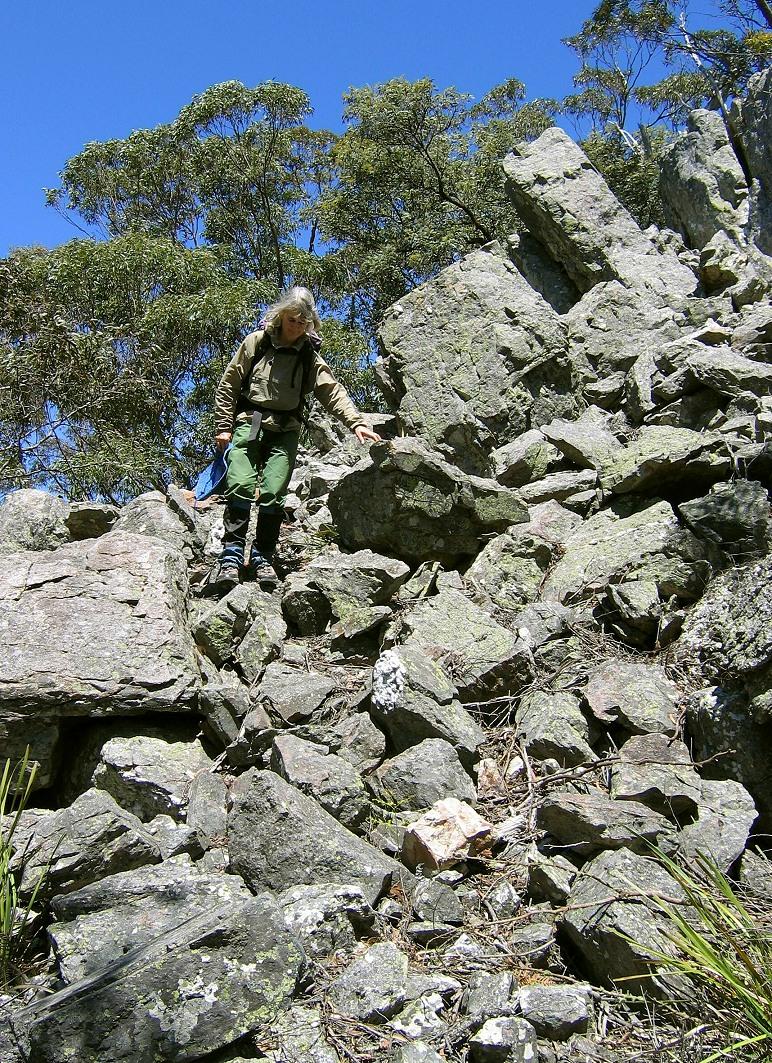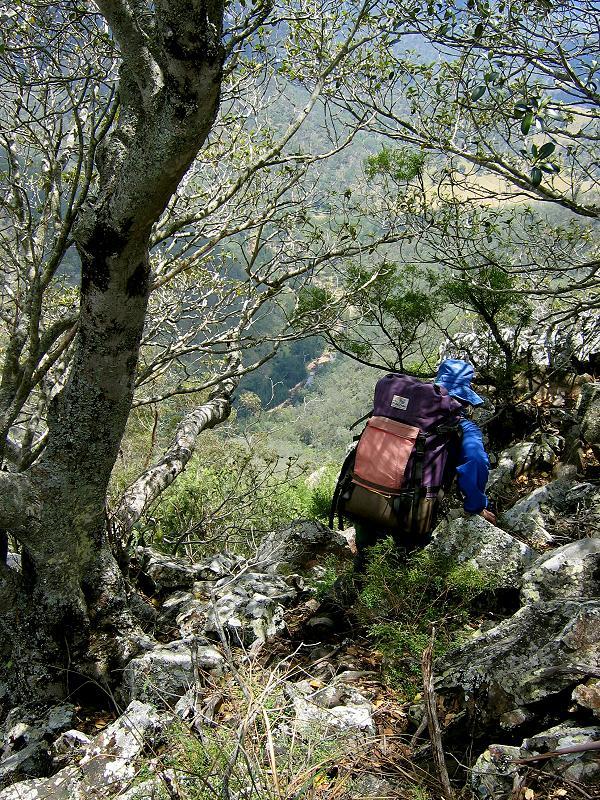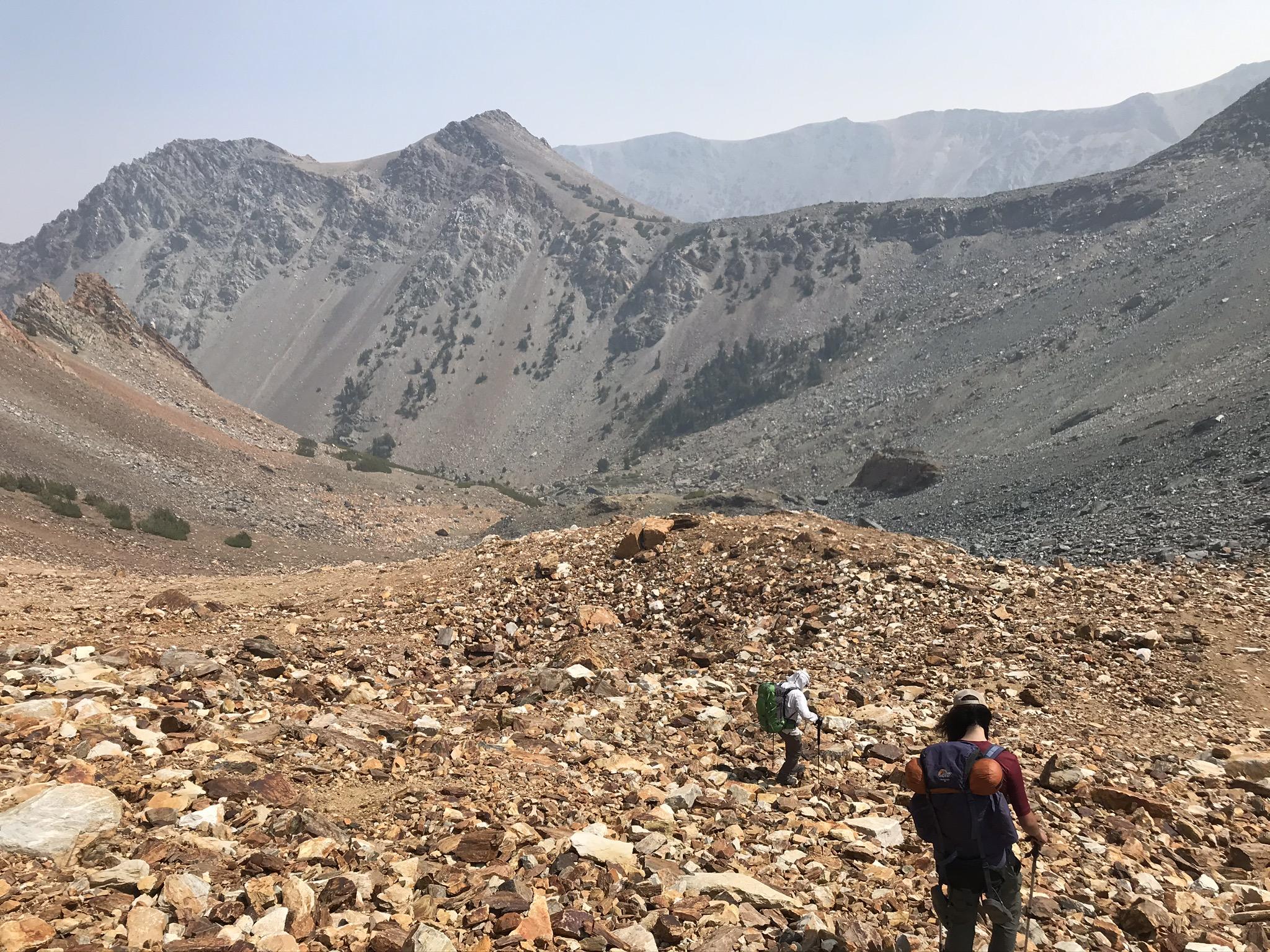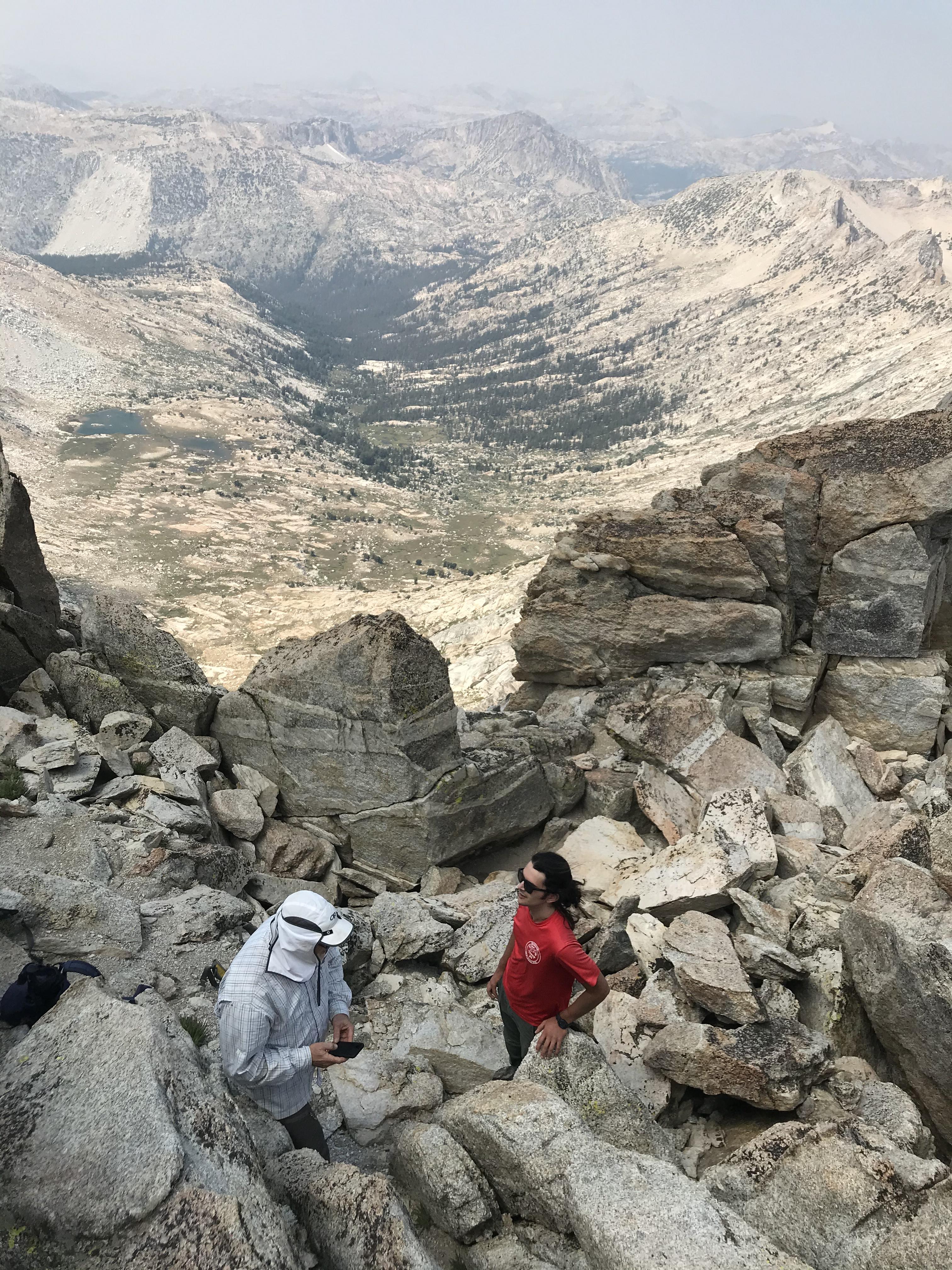Topic
How light is too light?
Forum Posting
A Membership is required to post in the forums. Login or become a member to post in the member forums!
Home › Forums › General Forums › General Lightweight Backpacking Discussion › How light is too light?
- This topic has 44 replies, 22 voices, and was last updated 3 years, 7 months ago by
 Tom K.
Tom K.
-
AuthorPosts
-
Apr 16, 2021 at 3:26 pm #3709172
So I was watching Grayson Cobb‘s video from a few years ago where he talks about his 3.5 lbs base weight for his Appalachian Trail attempt, and I couldn’t help thinking about fatigue and the body.

He ended up having to stop due to injury. In any athletic activity, fatigue of various sorts is often the root cause of many injuries. Stress and strain and mental fatigue have a real cumulative effect. If you have 100 tired people do the same activity as 100 rested people, the tired group is going to have more injuries.
So as impressive as the 3.5 lbs base weight is, I couldn’t help thinking about what an extra lb of comfort might have meant. You don’t need an extra 6 oz of foot support, but there’s obviously a trade off between wearing extra weight and getting extra protection. An extra lb of sleep system would have been a 30% increase to his total base weight, but if he’d woken up every day just that bit better rested maybe his body would have held up and performed better.
I’m not intending to call out his style of hiking. It’s more impressive than anything I do. I just thought it was an interesting example that had me thinking about how light is too light.
Apr 16, 2021 at 7:42 pm #3709200An extra lb of sleep system would have been a 30% increase to his total base weight, but if he’d woken up every day just that bit better rested maybe his body would have held up and performed better.
Agreed. I don’t think there is an absolute weight that is too low, with new materials and inventions, who knows what could be possible. There is also the individual comfort factor. Some cultures sleep comfortably on a 1/8″ thick straw mat on a dirt floor or use a block of wood for a pillow. The key thing for minimalist backpacking is proper conditioning prior to the trip and knowing one’s body. A poor understanding of how to maintain one’s health under extended exertion, such as the cumulative effects of inadequate fitful sleep, can be dangerous and even fatal.
Apr 17, 2021 at 10:11 am #3709229I understand he ended his attempt due to physical deterioration. That does not sound like a problem more weight would remedy. It is simply a consequence of repetitive physical stress which more weight generally exacerbates.
If he aborted his attempt due to mental deterioration, then I suspect some additional comforts and the associated weight might have helped.
I think you can go too light, but the line depends upon which wolf (to borrow an metaphor) you are trying to feed – the mental or the physical.
Apr 17, 2021 at 10:59 am #3709234I’m struggling to find the balance between light enough and foolish with footwear. I went from a pair of Salomon Quest boots to a pair of Altra Lone Peaks. The weight difference was astounding but I’m reasonably certain I’m risking injury in the lighter, less cushioning and protective shoes. I hike in predominantly rocky, rooty terrain and my feet don’t get as good purchase and I tend to roll the foot and ankle. But hey! I’m saving weight and wearing the latest and greatest!!! So there’s an instance where weight savings can be taken too far and also contribute to physical failure.
Apr 17, 2021 at 12:44 pm #3709244Bob, you provide a good example. It is interesting to note that you definitely paid a physical price each time you lifted a heavy boot, but you might pay a price one day if you slip in the lighter trail shoes. I guess risk tolerance needs to be factored into the equation somewhere, as well.
Apr 17, 2021 at 12:59 pm #3709246Bob, I did similar to what you did. But I went from heavy Limmer boots (“lightweight”), to Saucony trail runners, which were awesome, then rolled an ankle (that still nags me), & now insist on my Salomon Quest (4D?) boots if I’m carrying any weight at all. For me it seems to be the difference in whether I go our or not.
Apr 17, 2021 at 1:23 pm #3709248.” I hike in predominantly rocky, rooty terrain…”
I think one has to factor terrain into a decision. All things aren’t equal. That, and knowing one’s own anatomy and what that requires and going with that. Plenty of people will insist that trail runners are the only right way to go in all circumstances. maybe that works for them. I shrug it off and go with what works for me.
Oh, and an injury due to wearing too light footwear can have long term consequences, as Steve mentions. Or, a bruised foot due to wearing light soles in rocky country can ruin a trip.
Apr 17, 2021 at 2:17 pm #3709254”Or, a bruised foot due to wearing light soles in rocky country can ruin a trip.“
This is the reason why I don’t wear trail runners for hiking/backpacking. My ankles don’t seem to need much support and they don’t mind being twisted and bent occasionally, but the soles of my feet can’t take walking on rocks day after day.
I’ve wondered if a carbon fiber insole would allow me to wear lighter footwear.
Apr 17, 2021 at 3:57 pm #3709276”Or, a bruised foot due to wearing light soles in rocky country can ruin a trip.“
I am having trouble seeing the connection. I can easily see the connection between a sprained ankle and heavy boots on rocky ground, but a bruised foot is another matter.A bruise where? I can see getting a tired foot if your feet are not used to the load of backpacking, but that is solved by doing more work. I can see a bruised sole if you slam your foot down hard on a pointy bit of rock, but that whole problem is solved by walking more lightly.

We find the grip and flexibility of light joggers infinitely preferable on rough or rocky ground.
Cheers
Apr 17, 2021 at 4:22 pm #3709279I think too light or “stupid light” only comes when you the lighter weight costs you a critical component (i.e. the useful/common parts of a first aid kit) or reduces the usefulness of the component you are carrying (a sleeping bag that is too cold, a pad that is not comfortable enough for you to sleep on, etc.). Obviously every trip/season/person will have requirements, whether the person plans for those requirements is another issue altogether. Far more often I see people who are “stupid heavy”, which may not be as dangerous in terms of survival (as they have brought everything and the kitchen sink), but it takes going on trips to understand what you personally need to keep yourself safe and comfortable while out.
Apr 17, 2021 at 5:10 pm #3709283Bruised foot, that’s me. I find my Altras provide no underfoot protection even with a Superset Carbon insole. Every little rock jabs into my foot. Four weeks ago, my foot slipped off one wet rock and slammed the lateral aspect against another rock. The thin material of the shoes offered ZERO protection against the lateral force and I sustained a moderate bruise (possible stress fx) to the 5th metatarsal. Still sore today. Would I still have slipped in a boot: probably yes but I doubt my toe would have been as bruised. Having said all that, I doubt the Altra design team was thinking specifically about the crappy rocky trails in the Northeast. Honestly, there’s little trail running to be done where I hike.
Michael B’s point is so valid, too. I’d surmise that people quit early because of too much weight. I dont think I was stupid heavy, but even shaving my pack weight from 22 to 11 over the past year has resulted in improved endurance and, more importantly, fun! Some people, on the other hand, aren’t having fun unless they have the skillet, the cans of beer, axe etc.
Apr 17, 2021 at 5:17 pm #3709286Wet rocks – very tricky stuff.
Not all joggers have good grippy soles; some are more fashion footwear than outdoors gear. Can be hard to tell the difference.
Sometimes we find it safer to skip the rocks and walk in the river. Wet feet never bother us – they do NOT make blisters.Cheers
Apr 17, 2021 at 5:31 pm #3709288I’m not referencing the sorts of rocks in Roger’s photo.
The Sierra have very thin soil, especially at elevation. Coming from the Pacific Northwest, where trails tend to be covered with thick, soft soil, I was surprised by this. In the Sierra, one hikes mostly over small cobbles and a variety of other, often jagged rocks nearly 100% of the time while at any altitude. In other words, through a rock zone. Not big smooth boulders as in Roger’s photo, altho there are plenty of those as well.
A lateral slip that doesn’t result in a turned or sprained ankle can nevertheless slam an ankle against a sharp pointed stone. So, the soles of the feet and other parts of the feet can get bruised.
Apr 17, 2021 at 5:44 pm #3709289More like this sort of stuff?

Once again, you need good soles for a good grip – and then go cautiously. (Basalt scree run.)
Incidentally, we find trekking poles worse than useless in this sort of country. You have NO time to look where the pole tip is going, and then the tip slides everywhere, making it totally unreliable. Total focus on feet.
Cheers
Apr 17, 2021 at 6:11 pm #3709292That basalt scree looks positively diabolical!
Apr 17, 2021 at 6:17 pm #3709294Those scree boulder slopes are installed by the Carbon-Fiber and Tubular-Aluminum Marketing Boards to maintain a steady demand for replacement trekking poles.
Apr 17, 2021 at 7:05 pm #3709300“More like this sort of stuff?”
Luxury! where I hike, that’s the paved entrance to the parking lot. After that, the real rocks begin!
Apr 17, 2021 at 9:09 pm #3709307OK, more like this?

Or this?

Cheers
Apr 17, 2021 at 9:18 pm #3709309Apr 17, 2021 at 10:03 pm #3709314Too light is when your choices of lighter gear either put you in serious physical danger, cause enough discomfort to end your trips early, or destroy your ability to enjoy your trip, even if you manage to complete it. This obviously varies with the individual, so it’s pretty much a personal decision.
Apr 18, 2021 at 7:18 am #3709324“Luxury! where I hike, that’s the paved entrance to the parking lot. After that, the real rocks begin!”
Apr 18, 2021 at 9:06 am #3709331jch got the reference…
Apr 18, 2021 at 9:22 am #3709333Short answer is when the hiker freezes at night.
Remedy. The appropriate sleeping insulation and a way to keep it dry is a major component, … so a thick enough quilt/bag and waterproof cover (like MLDs eVent bivy) plus adequate pad system and ways to securely carry it all is a minimum for camp without having to resort to survival techniques (like bough cutting).
Anything else starts getting into the realm of UL camp comfort as many prefer not to spend a night within the confines of a bivy sack, etc… Same with mobility as most prefer the security of some type of shoe, but humans have worn sandals for millennia even in deserts … including for battle.
Apr 18, 2021 at 10:33 am #3709343Short answer is when the hiker freezes at night… Anything else starts getting into the realm of UL camp comfort
And this is where I diverge from from some of the extreme UL orthodoxy. There’s sometimes a perception of comfort being purely an aesthetic factor. Something of emotional value only. That some degrees of suffering come without any meaningful trade offs.
But if you have two hikers, one that spends all night not-quite-freezing and one that gets a comfortable sound sleep, the second is going to be more alert the next day. Their body will have recovered more completely. Their digestion is likely to have been better. And that effect is going to compound over days/weeks/months on the trail. And those have real impacts of health and efficiency.
It’s a trade-off of course. A question of accepted margin of error. Like the shoe discussion above where some shoes are perfect… as long as you never put a foot wrong. As compared to other shoes which may weight more, but increase the chances of actually finishing the trail in good shape by a meaningful amount.
I actually suspect that if you could do a statistically meaningful sample of backpackers with, say, a 4 lbs base weight and and 8 lbs base weight over X thousand miles, the 8 lbs would come out ahead as statistics caught up with the smaller margins of error.
Apr 18, 2021 at 12:03 pm #3709359What is meant by “coming out ahead”? I would enjoy reading a report of a study like that, provided it gave me meaningful insights about the subjects being observed – then I could make an assessment of how close the subjects’ situations were to my own, so i could then come to the meaningful conclusion of whether the study’s report applied to my own setup. A study of 20-30 year old hikers and whether a 5lb or 10lb base weight is better, and why, may not be very useful for my 40 year old, sleep deprived (I blame my 3 year old and my 3 month old), slow-to-recover body. That being said, I pack extra comfort stuff for my hikes, even short ones, because I know I need all the help I can get. My base weight is usually 10-15lb, and I am happy with that.
-
AuthorPosts
- You must be logged in to reply to this topic.
Forum Posting
A Membership is required to post in the forums. Login or become a member to post in the member forums!
Our Community Posts are Moderated
Backpacking Light community posts are moderated and here to foster helpful and positive discussions about lightweight backpacking. Please be mindful of our values and boundaries and review our Community Guidelines prior to posting.
Get the Newsletter
Gear Research & Discovery Tools
- Browse our curated Gear Shop
- See the latest Gear Deals and Sales
- Our Recommendations
- Search for Gear on Sale with the Gear Finder
- Used Gear Swap
- Member Gear Reviews and BPL Gear Review Articles
- Browse by Gear Type or Brand.


